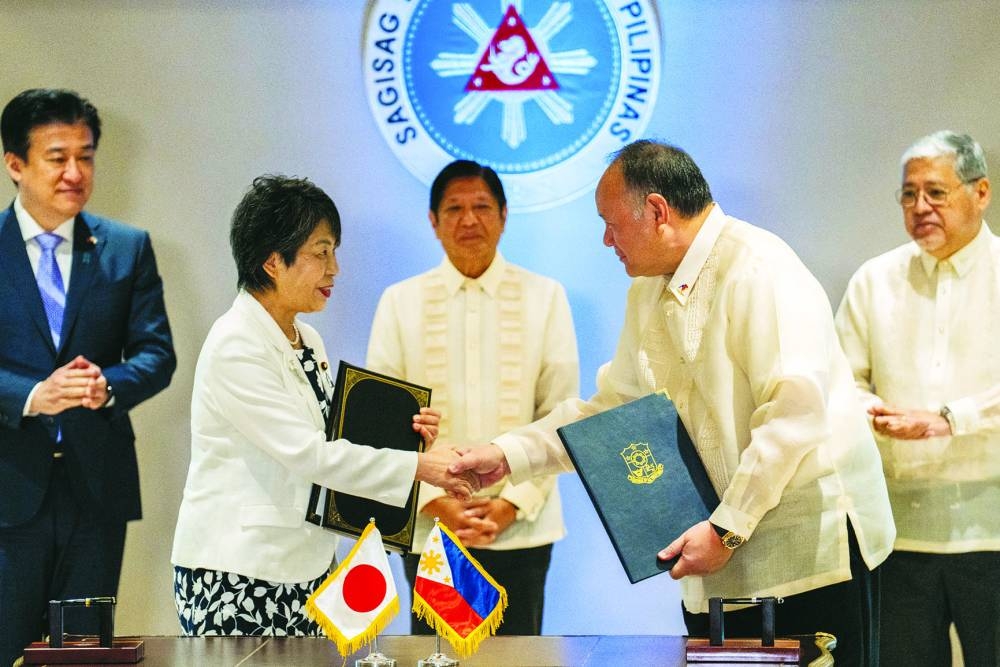The Philippines and Japan signed a key defence pact yesterday that will allow the deployment of troops on each other’s territory, as they boost ties in the face of China’s growing assertiveness.
The Reciprocal Access Agreement (RAA) was finalised in Manila, where Japanese Defence Minister Minoru Kihara and Foreign Minister Yoko Kamikawa held talks with their Philippine counterparts Gilberto Teodoro and Enrique Manalo.
The accord, which Tokyo and Manila began negotiating in November, provides the legal framework for Japan and the Philippines to send defence personnel to each other’s territory for training and other operations.
Teodoro and Kamikawa signed the agreement at the presidential palace. It will take effect once ratified by lawmakers in both countries.
The signing was “another milestone in our shared endeavour to ensure a rules-based international order, to ensure peace and stability in the Indo-Pacific and particularly in our region”, Teodoro said.
The Philippines and Japan are longtime allies of the US, which has been strengthening its alliances from Canberra to Tokyo to counter China’s growing military might and influence in the region. Chinese officials have accused the US of trying to create an Asia-Pacific version of Nato.
The signing of the RAA comes as China’s sabre-rattling towards Taiwan and over the South China Sea fuels fears of a potential conflict that could drag in the US.
There have been escalating confrontations at sea between Chinese and Philippine ships as Beijing steps up efforts to push its claims to nearly all of the strategic South China Sea.
The most serious happened on June 17 when Chinese coast guard personnel wielding knives, sticks and an axe surrounded and boarded three Philippine navy boats during a resupply mission to Second Thomas Shoal in the Spratly Islands.
A Filipino sailor lost his thumb in the incident.
Tokyo and Beijing are also at loggerheads over disputed islands, controlled by Japan, in the East China Sea.
Kihara said Japan was “gravely concerned” about the “escalation of regional tensions”.

Japan’s Foreign Minister Yoko Kamikawa and Philippine’s Defence Minister Gilberto Teodoro shake hands after signing the reciprocal access agreement, at the Malacanang Palace in Manila, Philippines, yesterday.
